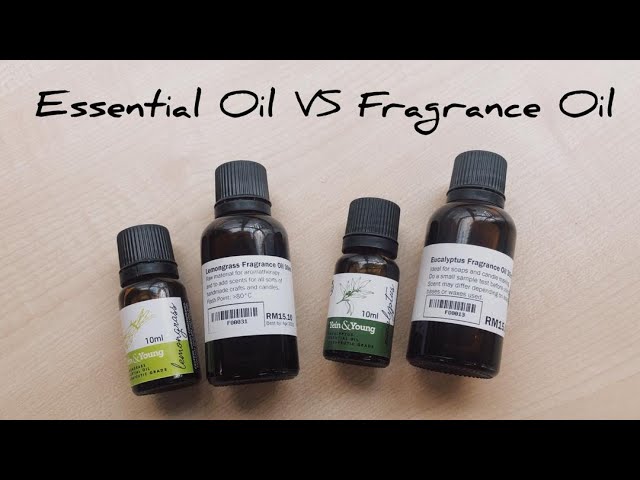At first glance, fragrance oils and essential oils might seem interchangeable. Both add delightful scents to products and spaces, and both play significant roles in industries like cosmetics, spa treatments, and aromatherapy. But when you delve deeper, the distinctions between the two become more evident. Understanding these differences is crucial for anyone looking to make informed decisions about the products they use or produce.
Origin: Nature vs. Lab
-
Essential Oils: Essential oils are natural products extracted from plants. These oils capture the plant’s essence, which includes its scent and beneficial properties. Extracted through methods like steam distillation or cold pressing, essential oils are pure, volatile, and concentrated compounds from specific plant parts like leaves, flowers, roots, or bark.
-
Fragrance Oils: Contrary to essential oils, fragrance oils are primarily synthetic. They’re crafted in laboratories to mimic specific scents. While some fragrance oils might contain traces of natural essential oils, many are entirely artificial, designed to emulate a vast range of scents—from the familiar aroma of fresh roses to the fanciful smell of unicorn dreams!
Benefits and Uses
-
Essential Oils: Beyond their pleasing aromas, essential oils are treasured for their therapeutic properties. Depending on the plant source, an essential oil might have antiseptic, anti-inflammatory, or even mood-enhancing qualities. These properties make them popular in holistic medicine, skincare, and aromatherapy.
-
Fragrance Oils: Fragrance oils shine in consistency and stability. Since they’re synthetic, they can maintain a consistent scent regardless of external factors. This makes them ideal for products where a stable, long-lasting aroma is desired, such as perfumes, candles, and soaps.
Cost and Sustainability
-
Essential Oils: Producing essential oils requires significant plant material, making some variants—like rose or sandalwood—quite expensive. Additionally, the demand for certain essential oils can sometimes outpace sustainable harvesting practices, posing ecological concerns.
-
Fragrance Oils: Being lab-made, fragrance oils can be produced more economically and consistently, often making them more affordable. However, it’s crucial to be aware of the environmental impact of their production, especially concerning non-biodegradable compounds.
Potential Allergens
-
Essential Oils: Natural doesn’t always mean hypoallergenic. Some individuals might be allergic or sensitive to compounds in certain essential oils, leading to skin reactions or respiratory issues. It’s always recommended to patch-test before widespread use.
-
Fragrance Oils: Fragrance oils can contain dozens, if not hundreds, of ingredients, increasing the likelihood of allergenic reactions for some users. Always checking the product’s components and testing before full use can mitigate potential risks.
Conclusion
While both essential and fragrance oils have their unique attributes and applications, understanding their differences helps consumers and producers make more informed choices.
Whether you’re seeking the therapeutic benefits of lavender essential oil or the consistent scent of a strawberry-scented candle, knowledge is key. And, um, speaking of scent, isn’t it fascinating how a simple aroma can transport us to a specific time or memory? It’s truly one of life’s little wonders!








